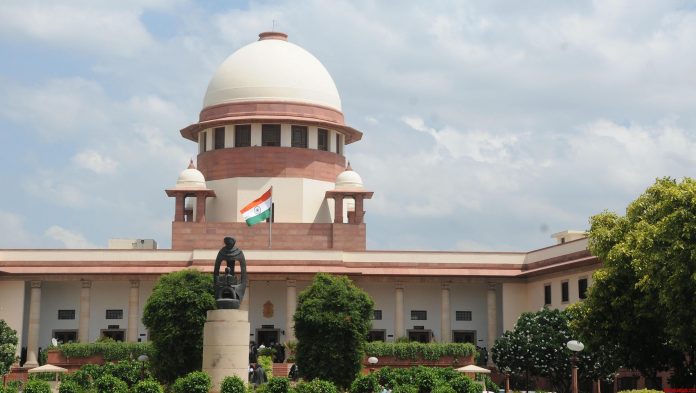New Delhi, (IANS): The Supreme Court on Friday agreed to hear a plea filed by a woman against the discriminatory laws in Jammu and Kashmir which prevent women, married to non-Kashmiris, from purchasing property in the state.
A division bench of Justice Dipak Misra and Justice A.M. Khanwilkar asked Additional Solicitor General P.S. Narasimha, appearing for the Central Goverment, to inform it whether this case involved a similar issue of challenge to Article 35A of the Constitution which was referred to a the three judge bench on July 17.
The petition filed by Charu Wali Khanna challenged Article 35A and Section 6 of the Jammu and Kashmir Constitution which deal with permanent residents of the state.
The woman said that being a Kashmiri Pandit by origin, she desires to build a home in Jammu and Kashmir, in order to re-discover her roots, but due to the peculiar discriminatory laws she is unable to purchase property in the state as she is a not a permanent resident, and further married to a non-Kashmiri.
Article 35A, which was added to the Constitution by a Presidential Order in 1954, accords special rights and privileges to the residents of Jammu and Kashmir, and empower its legislature to frame any law without attracting a challenge on grounds of violating right to equality of people from other states or any other right under the Indian Constitution.
Section 6 of the state Constitution restricts the basic right of women to marry a man of their choice by not giving the heirs any right to property if the woman marries a man not holding the Permanent Resident Certificate.
“Despite being a Kashmiri Pandit by origin, the state does not recognise the petitioner as a citizen. In total violation of the cherished constitutional ideal of gender equality, the women of Jammu and Kashmir do not have equal rights as men when it comes to citizenship rights for spouses and their children,” said the plea filed through advocate Bimal Jad.
“Due to operation of peculiar citizenship laws framed with respect to Jammu and Kashmir, under the guise of Article 370 and 35A, the men and women are subjected to different treatments and discriminated based on gender,” said the plea.
The plea said the Jammu and Kashmir government, under the guise of Article 35A and Article 370 which grants special autonomous status to the state, has been discriminating against non-residents (women married to non-Kashmiri) who are debarred from buying properties, getting a government job, joining any professional college run by the state government, or voting in the local elections.
“The petitioner ironically can work and buy property anywhere in India, in fact the world, except the state of Jammu and Kashmir to which her ancestors belonged to. Such discriminatory practices undermine a Kashmiri Pandit women’s identity causing severe mental harassment to the petitioner and the fundamental rights of the petitioner has been violated,” said the plea.
“Section 6 of the Jammu and Kashmir Constitution restricts the basic right of women to ‘marry a man of their choice’ by not giving the heirs any right to property if the woman marries a man not holding permanent resident certificate,” it added.
The petition also said that her children are denied a permanent resident certificate thereby considering them illegitimate – not given any right to such a woman’s property even if she is a permanent resident of Jammu and Kashmir.

